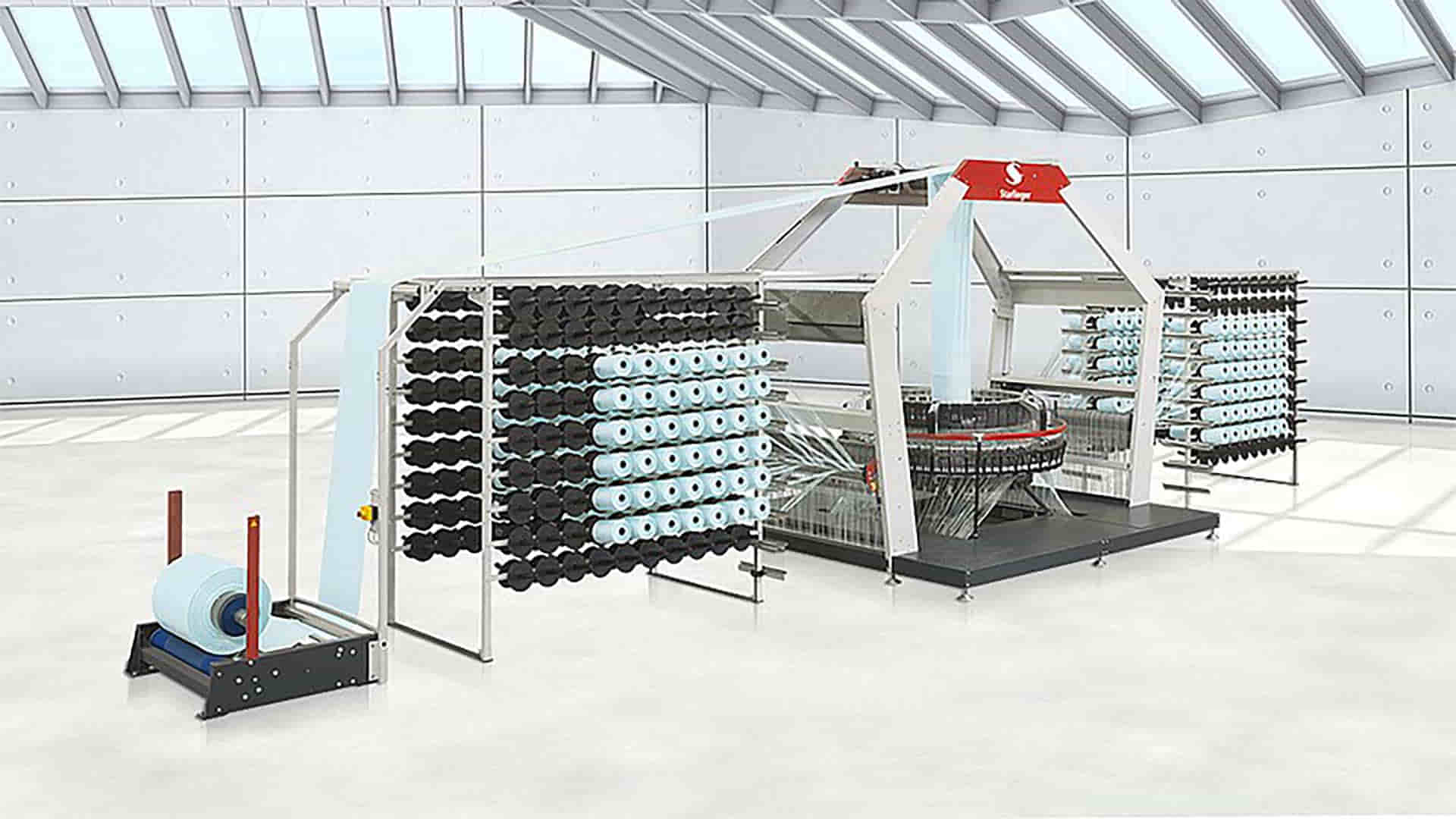The Austrian machinery provider Starlinger will show its latest developments for sustainable woven sack production at ITMA in Milan and the highlight will be the new circular loom FXa 6.0. Starlinger recycling technology will be present at stand C315 in Hall 9, providing information on recycling solutions for fibre and filament production. Starlinger textile packaging will welcome its visitors to show a closed packaging cycle for big bags, in which used big bags are turned into new ones again at booth B103 in Hall 3.
Starlinger, which has been a leader in the technological development of circular looms for the production of woven sacks from plastic tapes for over 50 years, is introducing an even more efficient and user-friendly machine that produces polypropylene tape fabric of the highest quality with the new six-shuttle circular loom FXa 6.0. Starlinger CSO Harald Neumüller stated that with the new FXa 6.0, they offer a circular loom with significantly reduced energy requirements and a low noise level and at the same time longer spare parts lifetime ensures significant cost savings. Neumüller said that by investing in new processes and innovative manufacturing methods for their in-house production they have been able to significantly minimise quality fluctuations in shuttle roller production and increase their service life, adding: “The FXa 6.0 also features a so-called IQ of 350. This means that on average there is only one warp tape break every 350 metres – an immense advantage in terms of machine downtime and work for the machine operators.”
Starlinger closes the packaging cycle
With its ‘Circular Packaging’ concept, the company has developed a closed packaging cycle for big bags, in which used ones are recycled into new ones again. Harald Neumüller disclosed that as part of their ‘Circular Packaging’ concept, big bags made of polypropylene fabric are equipped with a material passport that allows to trace their life cycle from production to use to return and recycling, saying: “This means that used big bags can be recycled without significant loss of quality and the regranulate used for producing new big bags – the packaging cycle is closed.”

